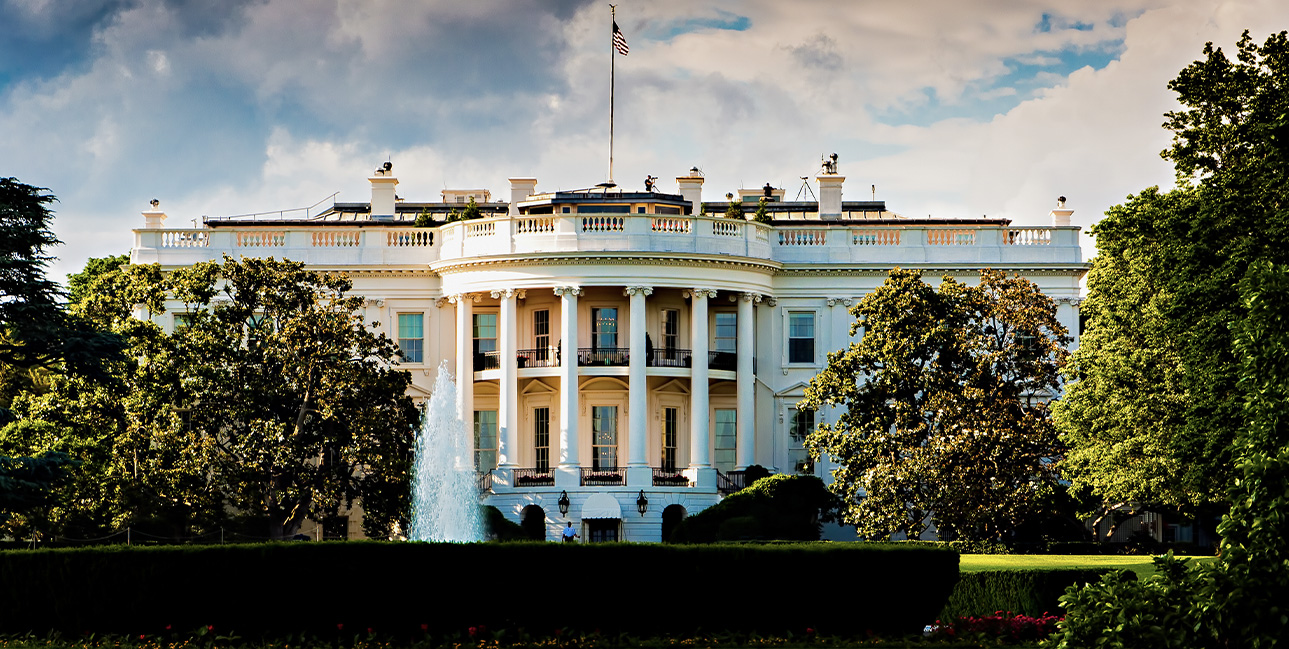Blog
August 27, 2024
Federal pre-election transition resources for presidential candidates
While the presidential campaign is now dominating the public’s attention, a less well known but crucial operation is unfolding behind the scenes: preparations for a new presidential administration.
In tandem with their campaign efforts, each candidate also forms a transition team. Vice President Kamala Harris and former President Donald Trump recently announced their transition team leads, who will begin the task of preparing to take office on Jan 20, 2025, if elected. Key tasks include identifying political appointees, liaising with federal agencies and preparing executive orders and plans for a new administration.
By law, eligible presidential candidates can receive pre-election transition support from the General Services Administration. This support includes government-funded furnished office space, supplies, computers and information technology services. The purpose of pre-election assistance is to facilitate the transition teams’ planning and preparation for office.
To initiate this process, the GSA notifies each candidate that transition resources are available. This year, GSA will formally offer this assistance, pursuant to the Presidential Transition Act, by Aug. 27. Should the candidates accept this offer, the GSA administrator will negotiate a memorandum of understanding with each transition team no later than Sept. 1 specifying the conditions for accessing the transition resources.
Conditions for receiving support
If candidates choose to accept private funding in addition to GSA resources, they must establish a legal entity separate from their campaigns that qualify under section 501(c)(4) of the Internal Revenue Code. Candidates can transfer contributions received for the general election campaign into this entity and may also solicit and accept donations directly. Individual or organizational contributions are capped at $5,000. Additionally, as a condition of accepting federal transition assistance, candidates must disclose to GSA (which discloses to the public) the source, amount and expenditure of all financial contributions supporting their transition activities. These resources are strictly for transition planning and cannot be used for campaign purposes.
What’s next?
In anticipation of an incoming team requiring post-election access to federal agencies, the administration, through GSA, will negotiate a separate memorandum of understanding between the White House and each candidate. The agreements are transmitted via the federal transition coordinator and detail the conditions for access, including meetings with federal employees and government documents. As part of this memorandum, candidates must commit to implement, enforce and make public an ethics plan for transition team members. This memorandum, to be signed no later than Oct. 1, will also reflect the terms of collaboration between the incumbent administration and the candidates. This cooperation will help facilitate an effective transfer of power from one administration to the next.
Although it may seem premature to prepare for the presidency before the election is decided, the candidates and their teams have a significant task ahead – to prepare to govern. GSA support services are just one of the many ways that the candidates and transition teams can maximize the limited time they have to prepare.
For more information on the GSA’s role in presidential transition, please visit their website. To learn more about other parts of the presidential transition, please see the Center for Presidential Transition’s comprehensive guide on presidential transition planning here.
This blog post was authored by Alex Claycomb, a fellow with the Center for Presidential Transition®



